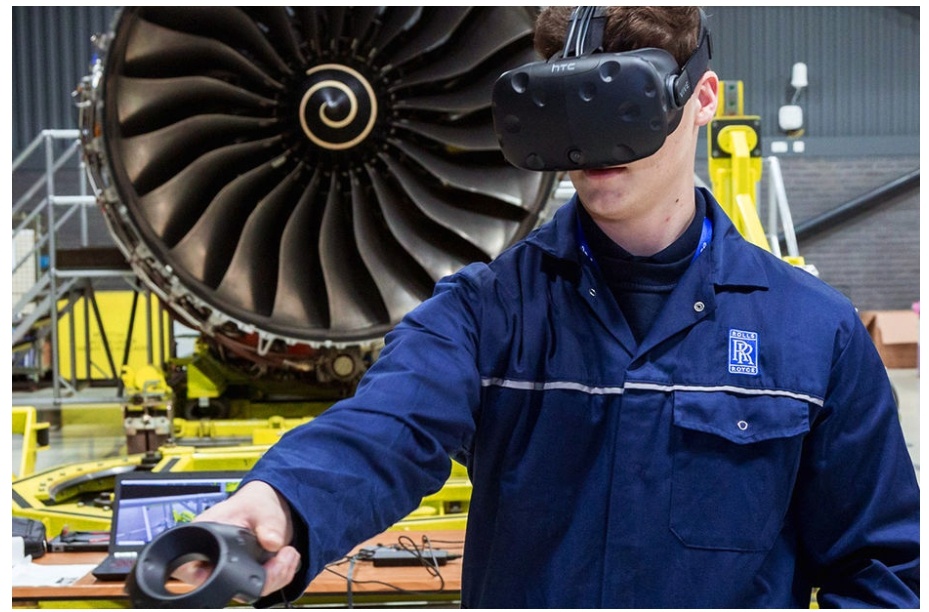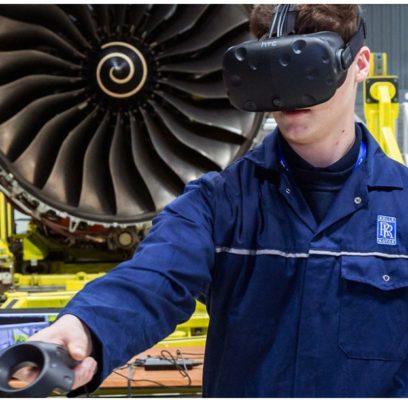Rolls-Royce wants to improve the training of engineers in the maintenance of its aircraft engines thanks to virtual reality. The British manufacturer has partnered with Qatar Airways to optimize the training of its teams to disassemble the Trent XWB, which equips the Airbus A350.
Perform maintenance operations on an aircraft reactor is not easy. This is especially true for the Rolls-Royce Trent XWB , which has a blower diameter of almost 3 meters. Its size makes it necessary to dismantle it systematically before being able to transport it to a repair center. These logistical constraints complicate the training of engineers and technicians responsible for its maintenance.
To get around this problem, Rolls-Royce has set up a virtual reality training program whose first client is Qatar Airways. A logical choice: the company was the first buyer of the Airbus A350 and therefore the first user of the Trent XWB, designed specifically for this aircraft. The program was inaugurated on April 15, 2019.
TRAIN WITHOUT IMMOBILIZING ENGINES
The first advantage of this virtual training is that it avoids having Rolls-Royce to route engines to Doha (capital of Qatar), or Qatar Airways to have to immobilize a production engine. The engineers are equipped with HTC Vive headsets and placed in a simulation that allows them to experience the disassembly of the reactor.
“We design, test and track the condition of our engines digitally, so applying advanced technologies to our training programs makes sense, just as pilots train in part on simulators, engineers can learn some in virtual reality, “ Chris Cholerton, president of Rolls-Royce’s civil aviation division , said in a statement.
The company states that the objective is not to replace traditional training, but rather to complete it, particularly with regard to refresher courses. Another element of the equation: the fact that more and more engineers must be trained to respond to the increase in air traffic. It should also be noted that training in virtual reality is currently experiencing strong growth in all sectors (retail, medical, industrial …) because it has become inexpensive and offers a rate of learning and retention of information close to field learning.
AUGMENTED REALITY ALSO UNDER STUDY
“Used in this context, virtual reality saves time, money, and avoids grabbing reactors that might be on planes carrying passengers,” said Steve Buckland. developed the VR training program at Rolls-Royce. The company is now studying the use of holograms for classroom training or augmented reality glasses to help with real maintenance by superimposing virtual information on physical engines.

